Southeast Asia's Largest Bank Migrates to Open Source Database MariaDB
The Challenge
Development Bank of Singapore (DBS) is Southeast Asia’s largest, handling nearly three million financial transactions monthly and having total assets of approximately $333 billion. Additionally, the bank has been named Asia’s safest for nine consecutive years. DBS executives are always seeking to maintain that level of excellence while moving the business forward through innovation – with a goal of driving customer excitement and continually simplifying the technology stack.
A few years ago, those pursuits came into conflict with the bank’s use of closed source, proprietary database solutions, so they began looking for alternatives that would satisfy these key requirements:
- Open source technology
- Cost-effectiveness
- Flexibility and scalability
- Compliance with strict financial services regulations
From Testing to Mission-Critical Deployment
“When DBS Bank first started the journey to open source with MariaDB, it took a conservative approach, testing a single non-critical application. It was a success, so they tested three additional applications, including a payment service module – a key component of the bank’s offerings. Those, too, were a success.
The MariaDB migration continued apace, and nearly two years into the journey DBS has more than 30 applications in production running on MariaDB, including some of the most complex applications for corporate banking services. Its commercial banking and integrated payment engines went live on MariaDB in August 2017 – the first two mission-critical apps to do so.
Real-Time Insights, Built-in Scalability and Other Benefits
Standardizing on MariaDB has been extremely successful for DBS. Key benefits include the following:
Flexibility
MariaDB affords DBS the flexibility to use the topology that works best for it. DBS can create applications with microservices and deploy them through a container (such as Docker) to aid in resiliency, ease of deployment and independent scaling.
Cost savings
With MariaDB, DBS sees cost savings of 30 to 70 percent, depending on the app and workload. There are no CPU fees to pay, so scaling out applications doesn’t automatically inflate costs like it can with proprietary databases.
Real-time data streaming
The MariaDB MaxScale database proxy’s change data capture (CDC) modules enable DBS to stream data automatically from MariaDB to Hadoop:
Comprehensive monitoring
The Monyog monitoring tool included in MariaDB Platform helps DBAs monitor everything from server status to query performance with a handy dashboard. DBS finds the database-comparison and conflict-monitoring features particularly useful, making troubleshooting and data duplication much easier.
Compliance
The financial services industry is governed by many regulations, and MariaDB features such as data-at-rest encryption and user auditing are invaluable for ensuring compliance.
Having started with a single test application, DBS has now integrated MariaDB solutions deeply into its business. And to spread the word about its successes, DBS has hosted two DBS/MariaDB conferences for technology colleagues to learn about the use of open source technology and how it can work even in risk-averse industries.
Hear from DBS about their journey with MariaDB at OpenWorks 2023
Additional Resources

5 Essential Practices for Database Security

5 Essential Practices for Database Security
Learn More
Proprietary Database Comparison vs. Microsoft vs. IBM vs. Oracle



